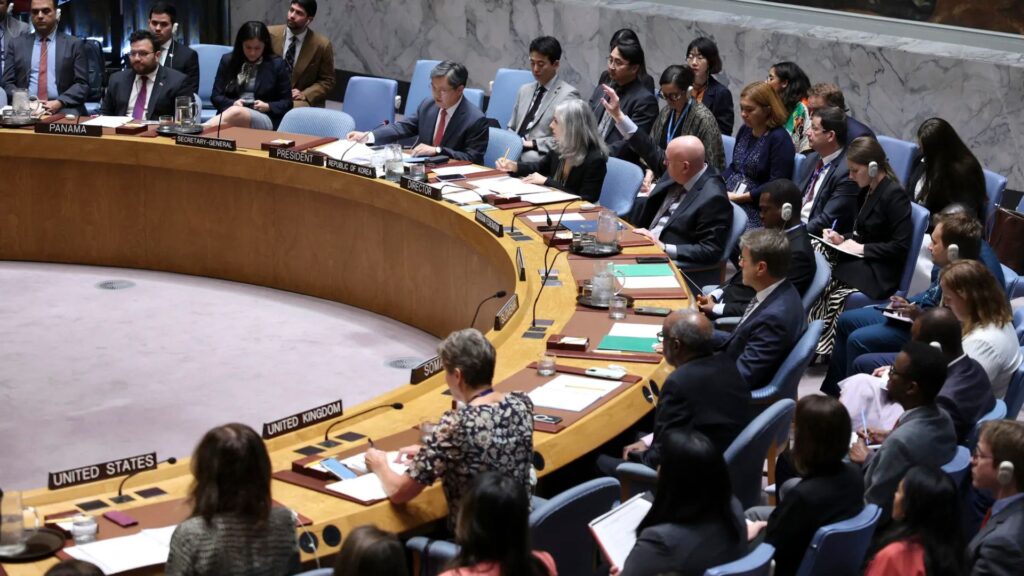
The United Nations Security Council on Friday voted down a resolution that would have continued sanctions relief for Iran, paving the way for the automatic reimposition of comprehensive UN sanctions on September 27. The measure failed by nine votes against, four in favor, and two abstentions, marking a major escalation in international pressure on Tehran over its nuclear program.
Resolution Defeated Under JCPOA Snapback Mechanism
South Korea, serving as Security Council president, tabled the resolution to permanently terminate previous sanctions lifted under the 2015 Joint Comprehensive Plan of Action (JCPOA). Russia, China, Pakistan, and Algeria supported continued relief, while the United States, United Kingdom, France, Germany, Denmark, and four others opposed the measure. The defeat activates the “snapback” mechanism embedded in Resolution 2231, triggering the return of arms embargos, ballistic missile restrictions, asset freezes, travel bans, and prohibitions on nuclear-related technology transfers on September 27 (Security Council Report).
European Powers Trigger Snapback Over Nuclear Violations
On August 28, Britain, France, and Germany—collectively known as the E3—notified the Council of Iran’s “significant non-performance” under the JCPOA, citing Tehran’s accumulation of enriched uranium stockpiles at over 40 times the permitted limit and restrictions on IAEA access to key facilities. Under the snapback provisions, UN sanctions automatically resume unless the Council votes to preserve relief. French President Emmanuel Macron told Israel’s Channel 12 that he anticipated sanctions reimposition, judging Iranian proposals “not serious” (Axios).
Iran Denounces Vote as ‘Illegal’
Iranian UN Ambassador Amir Saeid Iravani condemned the Council’s action as “hasty, unlawful, and politically motivated,” accusing the E3 of failing their own JCPOA commitments and acting under U.S. influence. He insisted Iran’s nuclear program remains “exclusively peaceful” and affirmed “diplomacy remains open,” with Foreign Minister Abbas Araghchi set to meet European counterparts during UN General Assembly high-level week beginning Monday (UN Press).
Outlook and Diplomatic Options
Acting U.S. Ambassador Dorothy Shea noted that reimposing sanctions “does not preclude later removal through diplomacy.” As Tehran braces for the return of sanctions on September 27, diplomatic channels remain active, though tensions in the Security Council underscore deep divisions over the future of the nuclear deal and broader Middle East security dynamics.




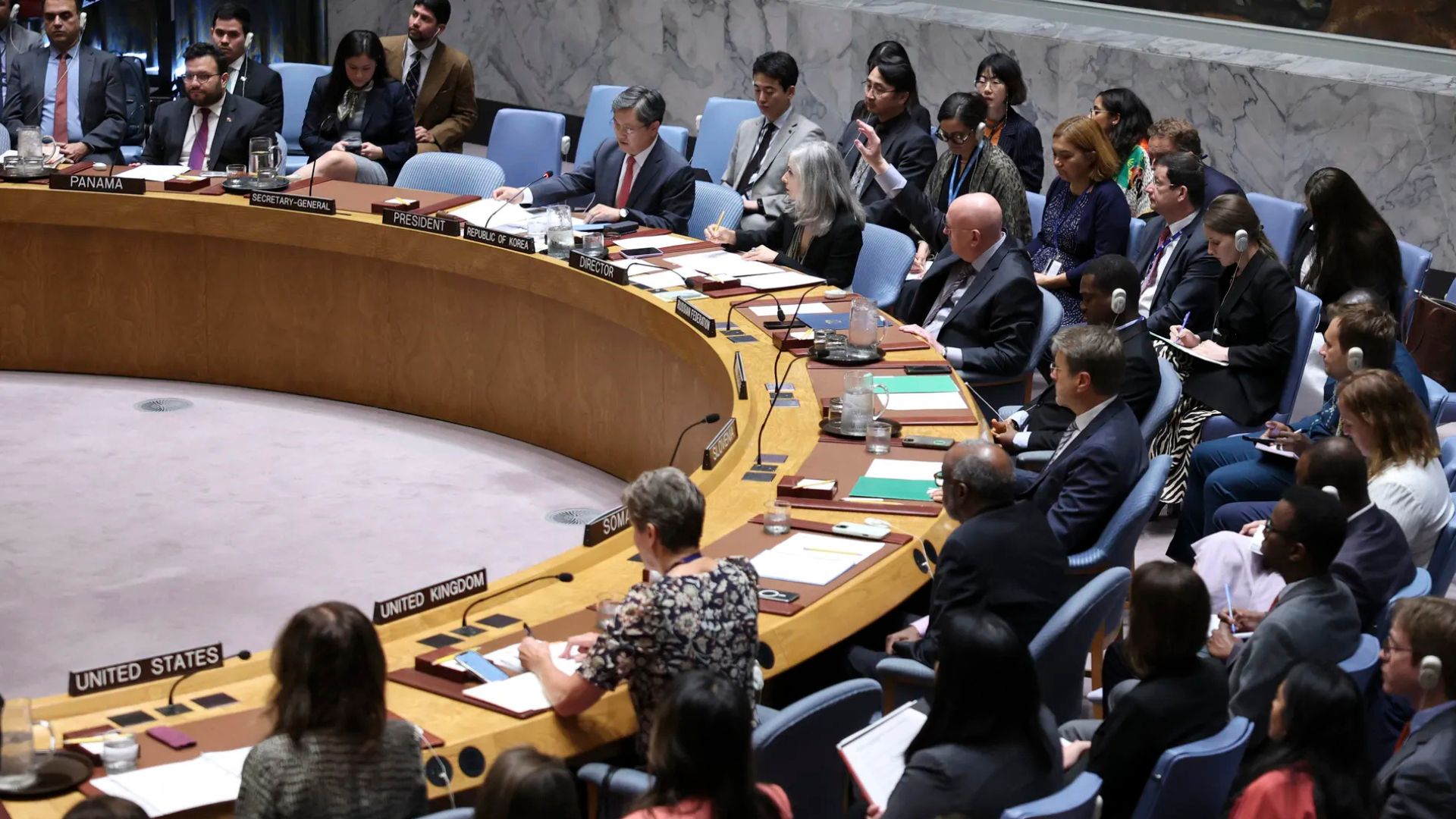

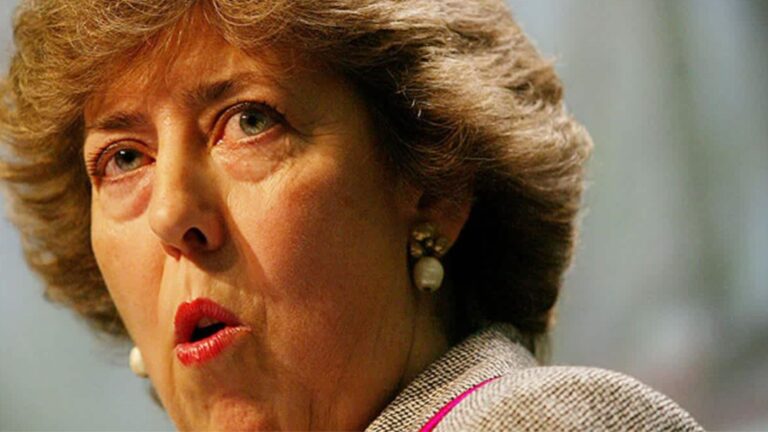
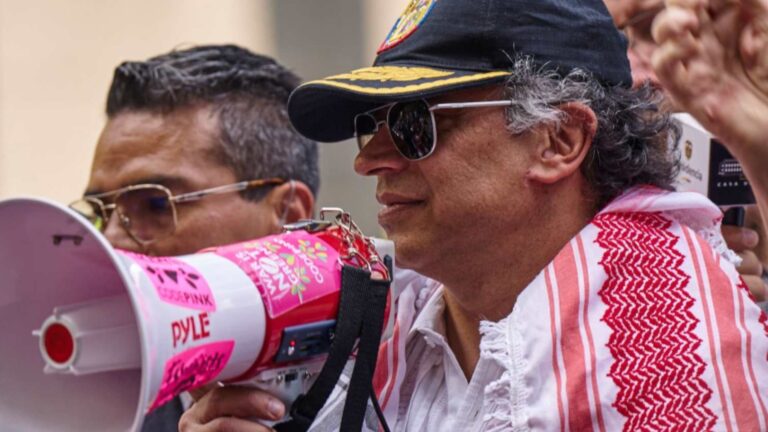



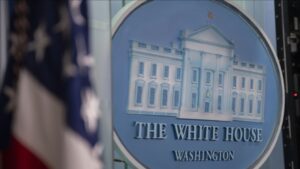
Your article helped me a lot, is there any more related content? Thanks! https://accounts.binance.info/en/register-person?ref=JHQQKNKN